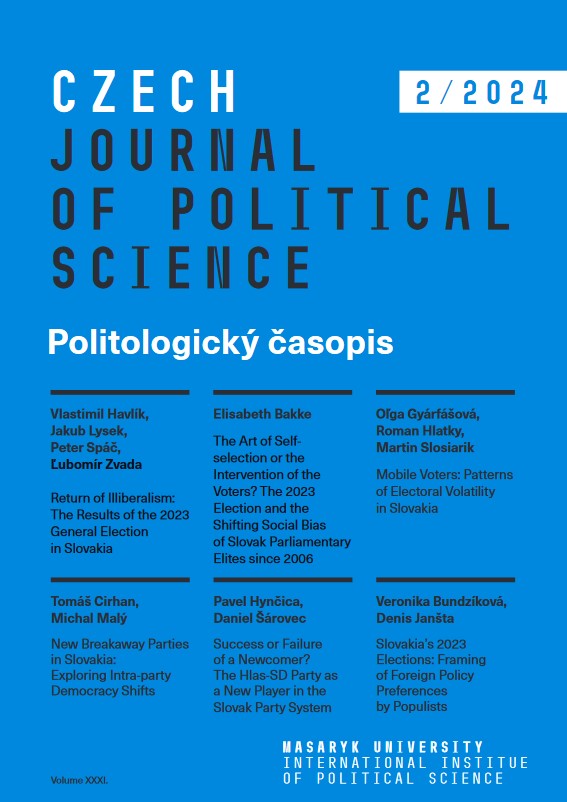New Breakaway Parties in Slovakia: Exploring Intra-party Democracy Shifts
New Breakaway Parties in Slovakia: Exploring Intra-party Democracy Shifts
Author(s): Tomáš Cirhan, Michal MalýSubject(s): Politics / Political Sciences, Political Theory, Governance, Government/Political systems, Political behavior, Comparative politics
Published by: Masarykova univerzita nakladatelství
Keywords: intra-party democracy; breakaway parties; party origin; party organization; personalization of politics; candidate selection
Summary/Abstract: Many new parties are electorally succeeding across European party systems, including in post-communist countries. This is especially true in Slovakia, where it is accompanied by another very specific phenomenon, which in our perspective defines recent parliamentary elections – the prevalence of new breakaway parties. These newly formed parties created by splitting from parliamentary parties are now competing alongside them in early parliamentary elections. The 2020-2023 period, in addition to seeing the fall of governments, and a general political crisis and instability, was also characterized by frequent party factionalism. During this period, turbulent development within SMER-SD, ĽSNS and OĽaNO translated into the formation of three new parties – HLAS-SD, Republika, and the Democrats, which represent our case studies. The aim of our paper is to analyse how these new breakaway parties differ from their original parties organizationally, in the processes associated with intra-party democracy (IPD). We empirically explore their leadership selection, candidate selection and membership policies. The existing data (based on the Populism and Political Parties Database) indicate that their three parent parties are highly personalized with low IPD. The findings of our comparative analysis reveal that the new breakaway parties have incorporated more transparent approaches to intraparty processes compared to their parent parties. However, concerning candidate selection, they have not embraced greater inclusiveness than the parties they originated from. Overall, despite a noticeable trend towards intraparty depersonalization, the opportunity for a broader membership base to participate in the decision making process remains largely unrealized.
Journal: Politologický časopis - Czech Journal of Political Science
- Issue Year: XXXI/2024
- Issue No: 2
- Page Range: 145-168
- Page Count: 23
- Language: English

